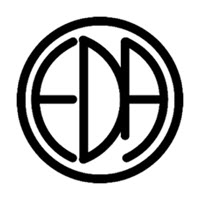12 step fellowship to recover from eating disorders. Eating Disorders Anonymous (EDA) was founded in 2000 by sober members of AA. People can and do fully recover from having an eating disorder. In EDA, they help one another identify and claim milestones of recovery. The only requirement for membership is a desire to recover from an eating disorder.
There are no dues or fees for EDA membership. They are self-supporting through our own contributions.
EDA is not allied with any sect, denomination, politics, organization or institution. EDA does not wish to engage in any controversy. They neither endorse nor oppose any causes.
Their primary purpose is to recover from our eating disorders and to carry this message of recovery to others with eating disorders.
In EDA, they try to focus on the solution, not the problem. Solutions have to do with recognizing life choices and making them responsibly. Diets and weight management techniques do not solve our thinking problems. EDA endorses sound nutrition and discourages any form of rigidity around food.
Balance – not abstinence – is the goal.
In EDA, recovery means living without obsessing on food, weight and body image. In eating disorders, we sometimes felt like helpless victims. Recovery means gaining or regaining the power to see our options, to make careful choices in our lives. Recovery means rebuilding trust with themselves, a gradual process that requires much motivation and support. As they learn and practice careful self-honesty, self-care and self-expression, they gain authenticity, perspective, peace and empowerment.
The website includes the following resources.
- EDA Big Book
- Organizational descriptions
- Meeting finder (face to face and online)
- Worksheets and other literature
- Audio recordings and slides about EDA – history and how it works
There are no food plans in EDA. EDA endorses sound nutrition and discourages any form of rigidity around food. Food is nourishment for mind, soul and body. Balance — not abstinence — is the goal. They encourage anyone looking specifically for a food plan to work with whatever trusted and reliable resources are available, such as a registered dietician trained in addressing the special concerns of eating-disordered clients, as needed.

